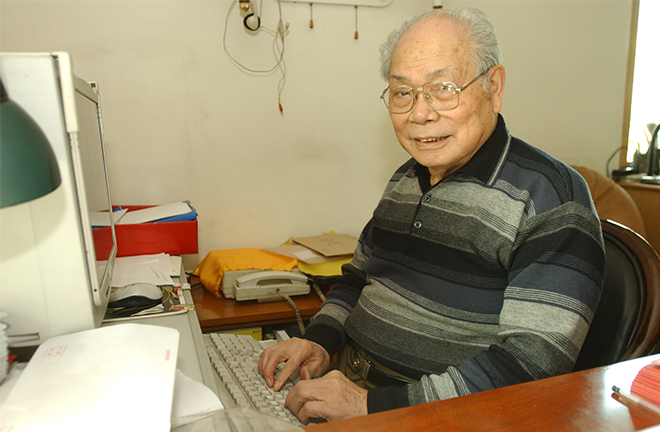Ma Shitu: A life between words and duty

FILE PHOTO: Renowned Chinese writer Ma Shitu (1915–2024)
In contemporary China, Ma Shitu (1915–2024) stood far apart from the ordinary. Born in January 1915 in the Ma family compound in Shibao Town, Zhong County, Sichuan, his birthplace—Shibaozhai—remains the only local landmark to have stayed above water following the filling of the Three Gorges Reservoir. As a young man, Ma left Sichuan to study and was deeply affected by the poverty and national weakness he encountered. Inspired by revolutionary ideals, he began shaping his place in modern Chinese history under the name “Ma Shitu.”
Early days as a revolutionary
During the hardships of the revolutionary era, Ma suffered personal tragedy: his first wife, Liu Huixin (c. 1915–1941), also his comrade in revolution, was made a martyr after being executed by the Kuomintang, and their infant daughter went missing—only to be reunited with him after the founding of the People’s Republic of China. After 1949, Ma served in various official posts in Sichuan and began writing in earnest during the 1960s, producing a series of widely acclaimed literary works. The film Let the Bullets Fly, adapted from his Ten Amazing Stories, became a cultural phenomenon.
In 2023, to celebrate Ma’s upcoming 110th birthday, we began planning a commemorative book titled Asking the Way: A Spiritual Dialogue Between Contemporary University Students and Ma Shitu. The project was inspired by the conviction that Ma’s life itself was the greater narrative—his literary works merely representing the tip of the iceberg. Yet shortly after the project began, Ma passed away. What remains are not definitive answers, but a multitude of pathways leading deeper into his inner world.
Paths to Ma’s inner world
Ma Shitu was a man of remarkable vitality—his life rarely paused, even well into his centenarian years, during which he completed several books. At the heart of this enduring energy, one finds a quiet yet powerful force: the dream that sustained him. Born into a relatively well-off family, Ma ventured out of Sichuan to pursue his studies, joined the revolution, endured countless brushes with death, and emerged from hardship with an open, optimistic spirit. His life defies simple categorization; rather, it reflects a vision long cherished by the enlightened minds of 20th-century China. It was this dream that fueled him, rendering even personal tragedies as passing chapters in a larger narrative.
Aside from his early years in traditional private school, Ma’s pursuit of learning was often entangled with revolutionary activities—so much so that he suspended his studies multiple times for the cause. Yet his literary and calligraphic achievements, and his late-life work organizing notes on oracle bone inscriptions from the National Southwest Associated University all demonstrate his reverence for scholarship.
Revolution was the defining thread of Ma’s life. Many have turned to Lu Xun’s concept of the “revolutionary man” to describe Ma’s literary work, emphasizing the intrinsic connection between his writing and the revolutionary movement—an important lens through which to understand China’s modern transformation. His fiction generally falls into two main categories: the first is revolutionary literature grounded in his personal experiences; the second, the Amazing Stories series, explores society and human nature. While the former is often cited when discussing his revolutionary identity, it is arguably the latter that reveals more. These stories seldom depict revolutionary life directly. Instead, drawing on the tone of Sichuan’s “longmenzhen” (idle chatter), they capture the tensions and truths of ordinary people’s lives. Through this vivid, often humorous narrative style, the revolutionary spirit of his protagonists emerges in everyday settings.
Ma lived through nearly every major upheaval of 20th-century China—events that altered the fates of millions and left deep scars. Yet his convictions never wavered, and his outlook on life remained undiminished. That, in itself, is extraordinary.
Zhou Weidong is a professor from the School of Literature and Journalism at Sichuan University.
Edited by REN GUANHONG
